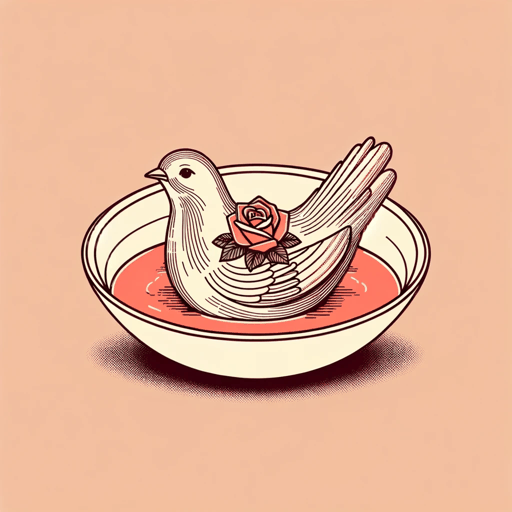69 pages • 2 hours read
Laura EsquivelLike Water for Chocolate
Fiction | Novel | Adult | Published in 1989A modern alternative to SparkNotes and CliffsNotes, SuperSummary offers high-quality Study Guides with detailed chapter summaries and analysis of major themes, characters, and more. For select classroom titles, we also provide Teaching Guides with discussion and quiz questions to prompt student engagement.
Important Quotes
“Tita liked to take a deep breath and let the characteristic smoke and smell transport her through the recesses of her memory.”
(Chapter 1, Page 7)
Science has proven that stimulating the senses can unlock memories buried deep within a person’s subconscious. One of the most powerful senses is smell. The piquant smell of a family recipe stirs love in Tita’s soul for her family’s traditions.
“…Tita felt her body fill with a wintry chill: in one sharp, quick blast she was so cold and dry her cheeks burned and turned red, red as the apples beside her.”
(Chapter 2, Page 13)
Humans experience grief in many ways. For Tita, her tears do not always imply sadness; they are sometimes a spontaneous overflow of powerful emotions. When Mama Elena denies her the opportunity to spend her life with her true love, Pedro, grief overpowers her in the form of a cold, dry wind. This is the opposite of tears, warm and wet. The frigid wind is barren and emotionless, whereas Tita’s tears are fertile with salt and passion.
“The whiteness of the granulated sugar frightened her. She felt powerless against it, feeling that at any moment the white color might seize her mind, dragging along those snow-white images from her childhood, May-time images of being taken all in white, to offer white flowers to the Virgin. She entered the church in a row of girls all dressed in white…”
(Chapter 2, Page 32)
Once Tita sees the preparation of Rosaura and Pedro’s marital sheet, she is plagued with images of white for days. As she mixes white icing for the wedding cake, she remembers her First Holy Communion (or confirmation). In this ceremony, adolescent girls dress in white—mimicking their wedding day—as a sign of their commitment to follow Christ. It is a symbolic moment serving as a metaphorical baptism. These images do not comfort Tita, and she is haunted by what she sees as a curse of perpetual virginity inflicted by
Featured Collections
Books Made into Movies
View Collection
Books that Feature the Theme of...
View Collection
Brothers & Sisters
View Collection
Daughters & Sons
View Collection
Family
View Collection
Hispanic & Latinx American Literature
View Collection
Historical Fiction
View Collection
Magical Realism
View Collection
Marriage
View Collection
Mothers
View Collection
Pride Month Reads
View Collection
Romance
View Collection
Valentine's Day Reads: The Theme of Love
View Collection
War
View Collection

